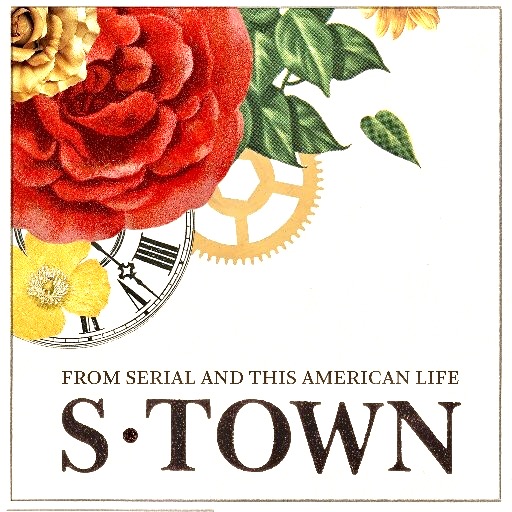By Erin Cabrey

For many college students, headphones are lifelines. Other than using them to connect us to our favorite tunes, there is another oft-overlooked form of sonic entertainment: podcasts. Now, more than ever, people are pressing play on hundreds of thousands of different podcasts that tell stories, give advice, chat with celebrities, uncover murder mysteries or solve tricky math problems.
This medium is not new, yet it has been rising in popularity. Apple reported that 10 billion podcast episodes had been streamed on its podcast app last year, and listenership continues to grow in 2017 for several reasons: an increase in quality, big celebrity guests and a particularly frustrating political climate that listeners are yearning to decipher. With media organizations like The New York Times, The Wall Street Journal, Buzzfeed, WNYC, Vanity Fair and FOX News, along with recognizable names like Lena Dunham, Anna Faris, Alec Baldwin and most recently, Bernie Sanders, grabbing the mic, it is clear that the podcast momentum is not slowing down.
Students enjoy listening to podcasts for a number of reasons.
“It’s cool because I can listen to something, which doesn’t require me to intensely focus, while doing other things like cooking and doing laundry while listening to something interesting,” said James Corbett, FCRH ’18, a fan of BBC’s A Brief History of Mathematics, of listening to podcasts. “I feel like they’re a good use of my time,” said Corbett.
“I listen to podcasts while I’m commuting to and from the city, doing my homework or cleaning my room,” said Kathryn Porter, FCRH ’18. “It’s a good way to pass time and feel like I’m not wasting my time because I’m able to learn and listen to captivating stories.”
Right now, the biggest story in the podcast universe is the new podcast S-Town, which, within four days of its release, hit the 10 million download mark on its episodes, besting the seven weeks it took Serial to do this in 2014. A collaboration between Serial and This American Life, S-Town tells the story of a journalist who, prompted by an email correspondence with an Alabama man, investigates a possible murder in a small town. Sharp twists and turns abound.
“There’s a lot of suspense, but it’s interesting to keep in mind that it’s a true story about murder, sexual assault and conflicts of power and social class in a small southern town,” said Porter. “No matter when or where you’re listening it really feels like you’re part of the story.”
Maddie McGuire, FCRH ’18, preferred Serial over S-Town. “Serial was addicting. It was a story you could follow weekly and speculate. To be honest, I’m not as much of a fan of S-Town. I don’t find the story to be as enticing as Serial.”
Besides benchmark podcasts such as Serial and S-Town, there is a wide array of audible offerings: from the arts to business, politics, sports, comedy and health, a slew of sounds is available to every listener eager to learn something new, or make sense of something they already do. Listeners today can learn a new language, analyze a turbulent presidency or kick back with two guys gabbing about “Gilmore Girls.” These personalized podcasts allow listeners to hear discussions about the very specific things that interest them.
“Pod Save America is great,” said Kirsten Goeben, FCRH ’18. “It’s people who were all White House staff. They’re breaking down political issues and they’re so good at going in-depth and analyzing it. They’re not just delivering news like in an article, but they’re discussing it and giving different perspectives on the issues.” Four former aids to President Obama reformed this podcast, previously named Keeping It 1600, to focus on challenging President Trump post-election.
“I listen to Invisibilia,” said Helen Ziminsky, FCRH ’18. “I always learn something new when I listen to it. It’s just three women talking about philosophy and existence, and I love it.” Invisibilia is an NPR podcast about “the invisible forces that control human behavior” that Time describes as “Life, explained.”
“Hidden Brain gives really interesting facts,” said McGuire. “It’s about how different emotions and actions affect our brains and what causes them and how it changes and impacts our behaviors. I also like Art of Charm [a podcast aimed at making the listener a “better thinker”], because although it’s geared toward the male audience it offers good life hacks and tips. I enjoy the psychology-based podcasts the most.”
Several students also cited comedy podcasts as among their favorites. 2 Dope Queens is a WNYC podcast hosted by former “Daily Show” correspondent Jessica Williams and New York Times best-selling author Phoebe Robinson recorded on stages throughout New York City, discussing everything from race, gender and sex to Matthew McConaughey. “I like 2 Dope Queens because it’s funny and the episodes are short enough that it feels like a break,” said Ziminsky. “And I like that it’s coming from the black female perspective, which is a perspective I don’t usually get.”
“Anna Faris is Unqualified is one of my favorites,” said Goeben of the podcast in which actress Anna Faris and celebrity guests give advice to callers. “It’s a mixture of celebrities and everyday people. It’s different every time and she’s great at interviewing people, and she gets really attached to them. She cares how they’re doing.”
The multiplicity of this medium, its ability to make listeners laugh, cry or reevaluate their existence, is among several reasons podcasts are proving to be so enticing to the ear.
As simply put by Tavi Gevinson, host of the new chart-topping Rookie podcast, “I listen to a lot of podcasts, and I feel like they have taught me how to be a person.”





































































































































































































